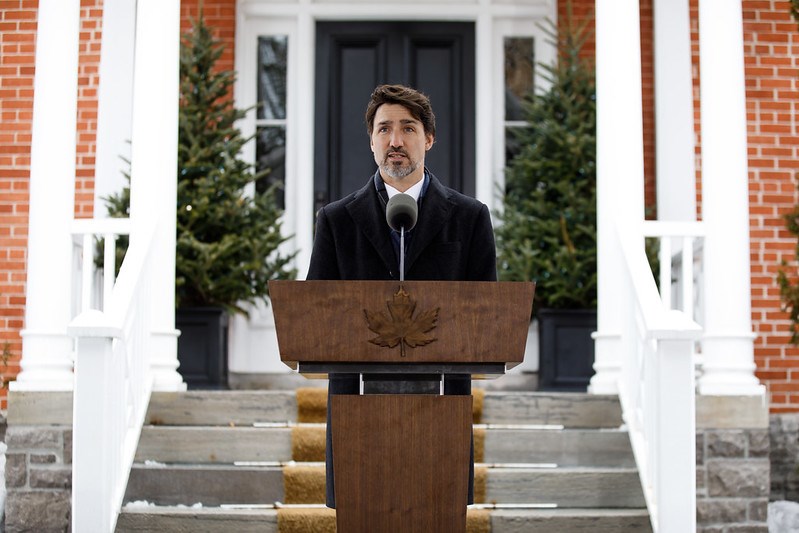The federal government is expanding the Canadian Emergency Response Benefit (CERB) to help those previously not eligible and will soon offer some essential workers a top up in pay.
Prime Minister Justin Trudeau said Wednesday (April 15) government will loosen eligibility requirements for the $2,000 monthly CERB, allowing those still earning up to $1,000 a month to apply for the program.
Seasonal workers facing fewer job prospects in the warmer summer months will also be able to apply to the CERB as well as workers whose Employment Insurance benefits have recently been exhausted.
Trudeau also announced essential workers — notably those in care centres — making less than $2,500 a month will soon get a wage top-up.
“We know conditions have gotten more difficult over the past week,” the prime minister said during his daily media briefing outside his home in Ottawa.
The federal government will begin speaking to the provinces and territories Thursday about delivering the wage top-up to workers, he added.
B.C. estimates it will cost the province $10 million a month to cover its top-up for long-term care workers, who are no longer allowed to work at multiple facilities.
Trudeau’s economic announcements comes amid grim figures from various institutions.
Statistics Canada released a “nowcast” earlier in the day that revealed the nation’s GDP shrank 9% in March, the largest one-month decline since the national agency began tracking the data in 1961.
The cratering of the economy in March makes for a 2.6% decline in GDP for the first quarter of 2020.
Unusual for the Bank of Canada, however, was that it did not offer a forecast for the economy following its rate announcement in the morning.
The central bank, which maintained its overnight rate of 0.25% following two unscheduled cuts the month before, said it would be problematic to release such a forecast amid ongoing economic uncertainty.
But the Bank of Canada revealed it would be purchasing up to $50 billion in provincial bonds and $10 billion in corporate bonds to bolster the economy amid the pandemic.
More to come …



